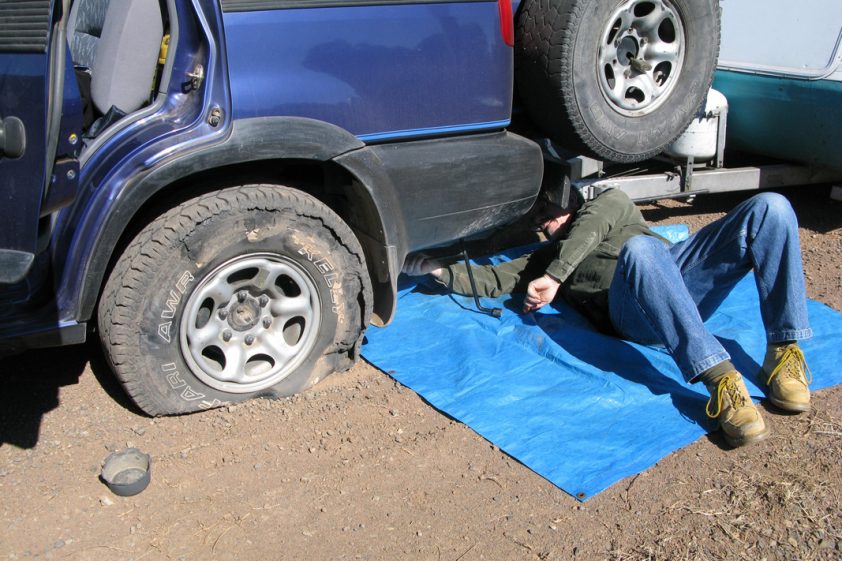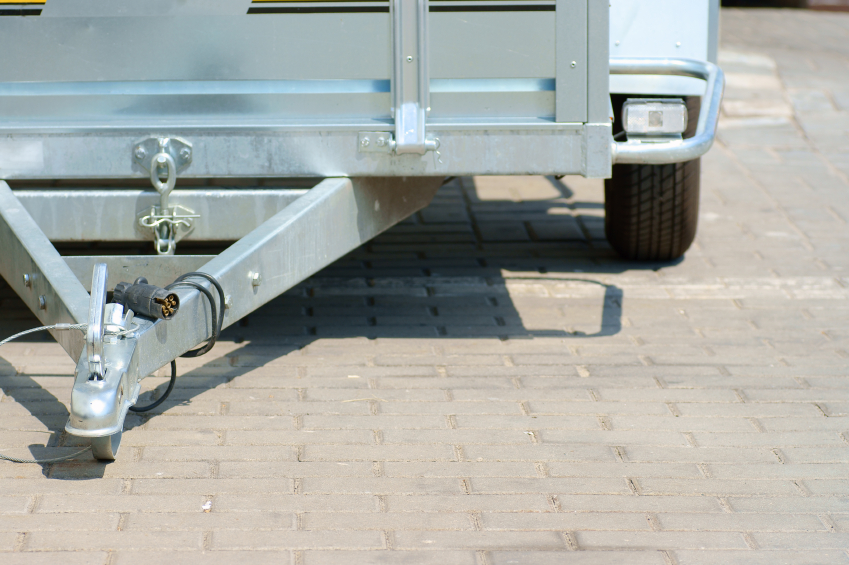The tyres which roll beneath our caravans and camper trailers get relatively little or no thought from most of us. They might occasionally get a pressure check when we are filling with fuel, or, if we are conscientious, before a major journey, but unless they go flat that is often the limit of our consideration.
The simple fact of the matter is that tyres age, slowly and inexorably, even as they sit quietly in our yard or garage.
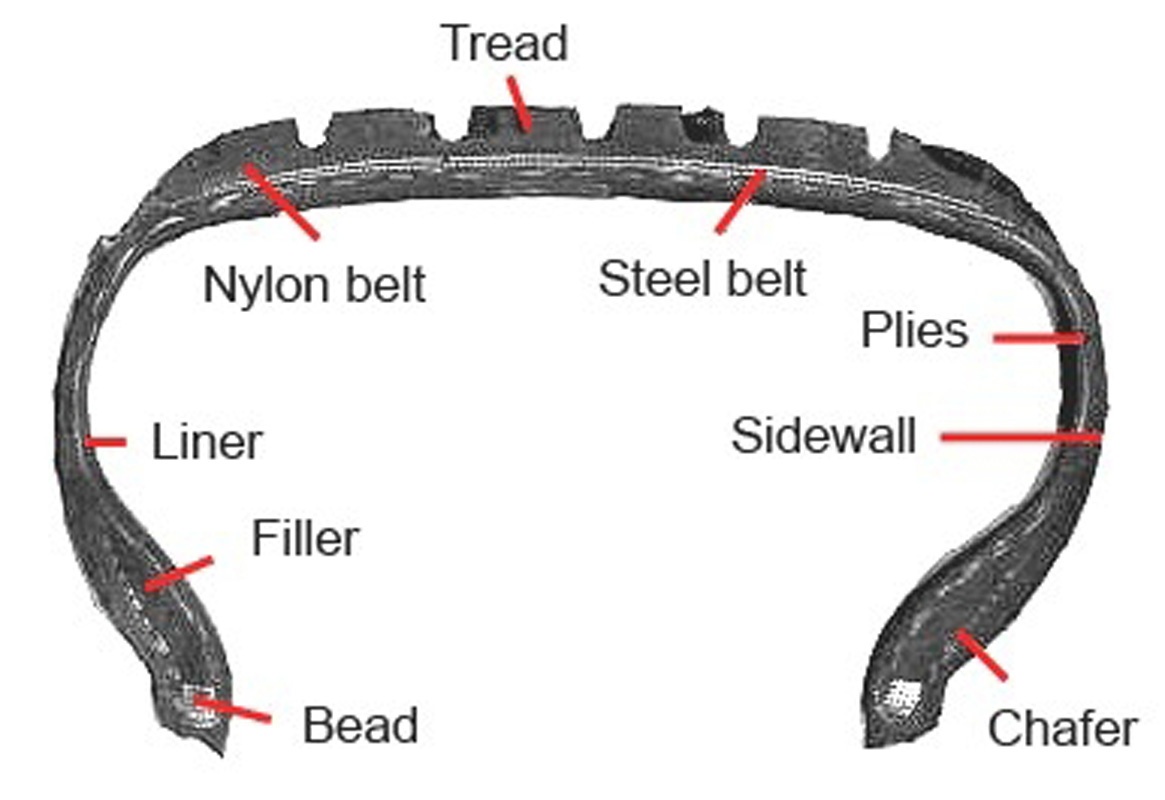
The tyres on towed vehicles, such as caravans and camper trailers, in general don’t suffer from too much wear, despite being dragged along behind their tow vehicle. They don’t have to steer and generally perform only a minor role in braking, so usually simply follow in your vehicle’s wheel tracks.
It is this very fact that leads many owners to forget all about them, other than that occasional topping up of the internal air when it’s convenient, and it’s this factor which leads to so many caravans and camper trailers with seemingly inexplicable tyre failures.
After five years you should have your tyres inspected every year, by a tyre professional at a reputable brand tyre shop. Depending on storage and treatment they can be okay up to 10 years of age, after which they should be replaced as a matter of course, regardless of appearance.
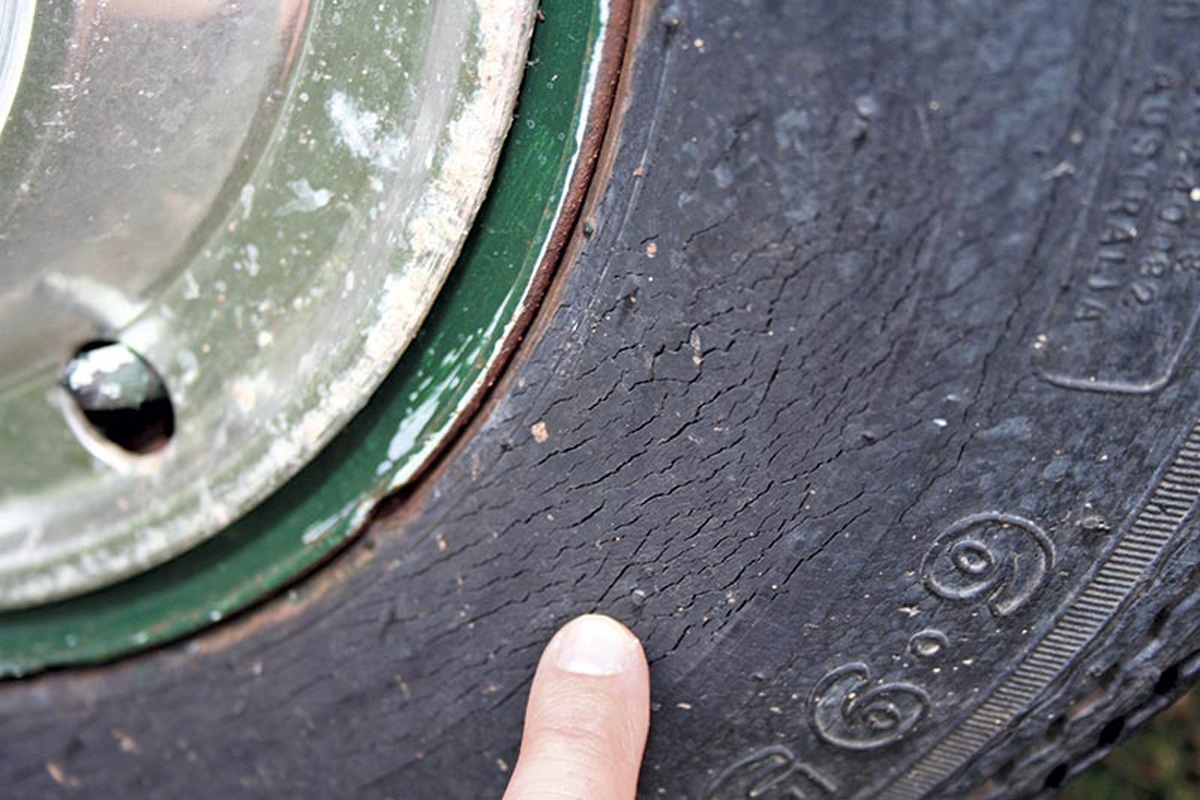
It is possible to undertake basic inspections yourself. You’re looking for such things as the fine network of ozone cracking in the tread and sidewall as the main indicator, as well as signs of under-inflation, creasing, and discolouration, with the tyres going blue in the shoulders.
The nature of storage of your caravan or camper trailer – in other words the environment in which the tyres sit when not in use – can be significant. Heat and sunlight are two of the more important factors so storage inside assists in ensuring a longer life. But one factor which many people don’t recognise is the proximity to an air compressor. These, or any electrical motor, emit a lot of ozone and this is the main catalyst for rubber breakdown. Solvents or petrol can be harmful, as can oil-based tyre shines.
One other factor that is not often observed is rotating your tyres from side to side of your caravan or camper trailer. This should probably be done every 5000 to 10,000km, which can reduce uneven wear.
Wheel alignment, especially with independent suspensions, is also important. Just one degree out of alignment equates to the tyre being dragged sideways 17m for every kilometre it travels.
The greater the tyre use the more flexing is involved in the rubber, so this has an obvious impact on tyre life, notwithstanding the fact that even if a tyre has been stored away for 10 years and only done a handful of kilometres it’s still unlikely to be any good.
That ultimate life span of a tyre can really be put down to a continuation of the vulcanisation process – the heating of the rubber with other chemicals to form a less sticky and more durable and mechanically sound material – in the rubber after manufacture, which results in a hardening of the rubber so that it becomes more brittle.
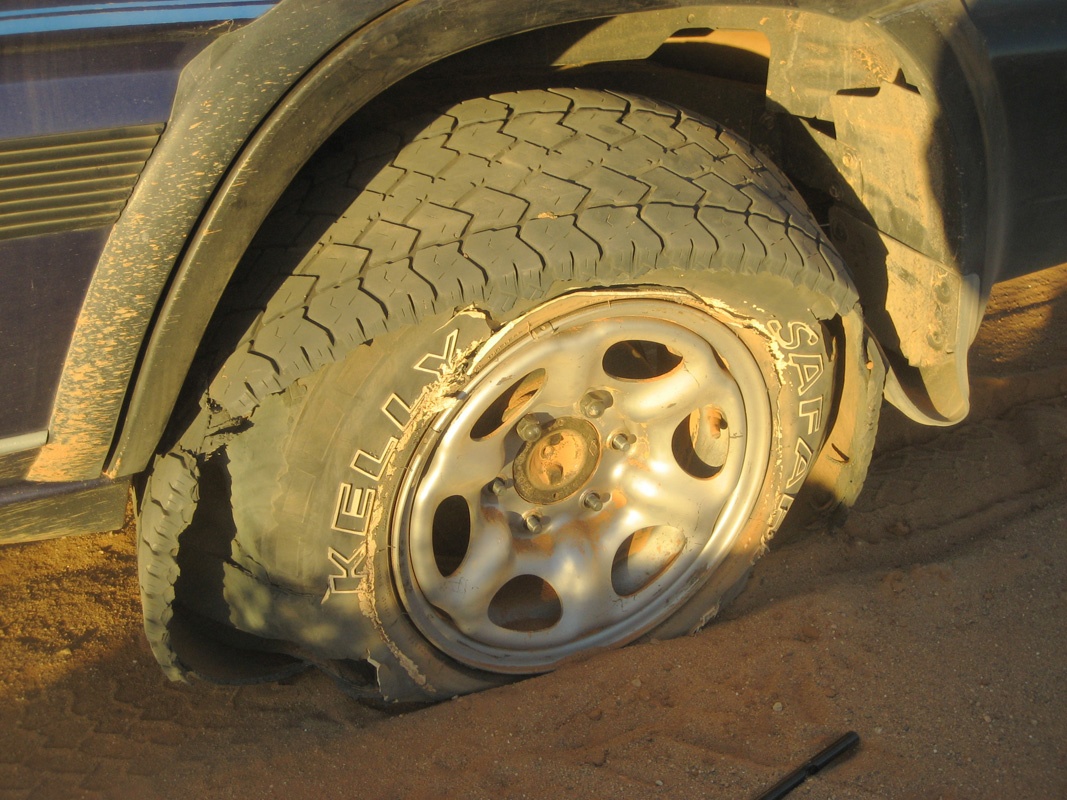
The main cause of failure in tyres due to age is belt separation. The industry has a far better knowledge of radial tyres, which have been the norm now for quite a while, in preventing this through tyre design.
Tyre design – all terrain, light truck, highway terrain, etc. – does not have any impact on the rate of degradation because the failure really occurs between the skimcoat of the tyre with the steel belts, which is the same for all tyre products.
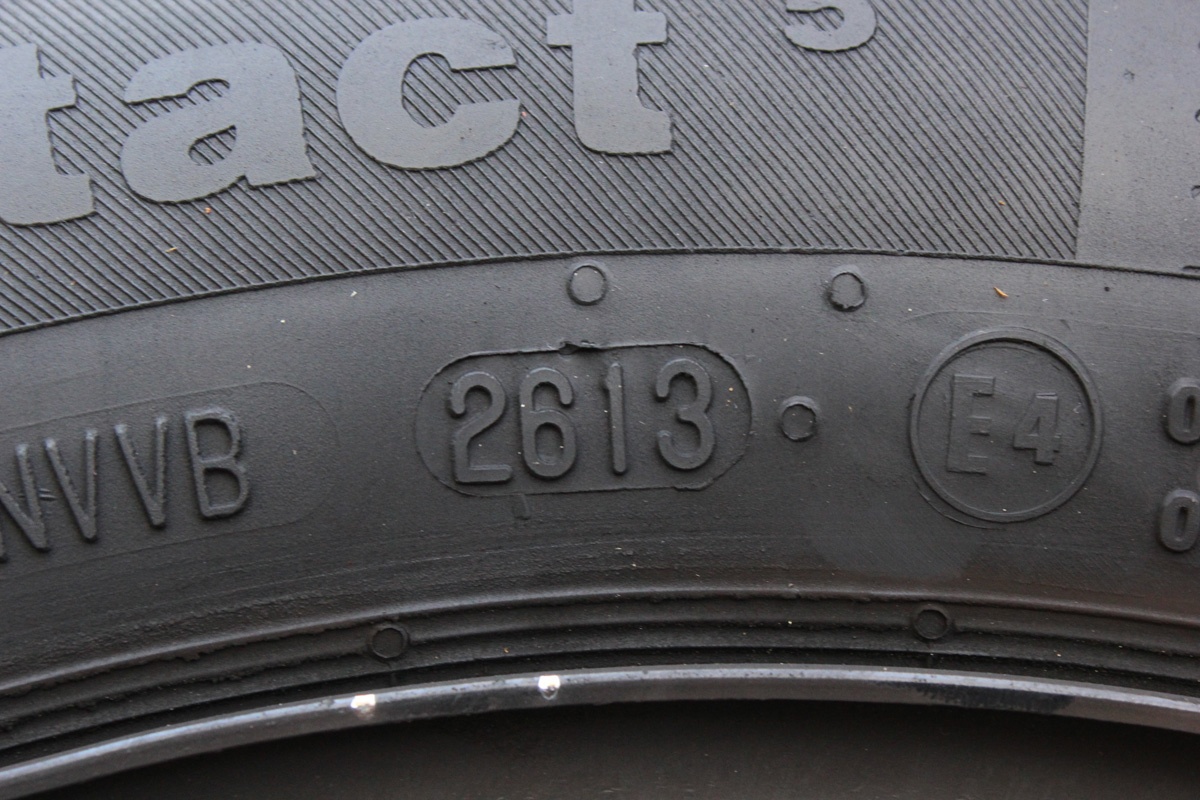
To assist you in assessing the age of your tyres the date of manufacture is a four digit number (since the year 2000, before that it was three digits) on the sidewall. These are easy to read. For example the number 1013 is the 10th week of 2013.
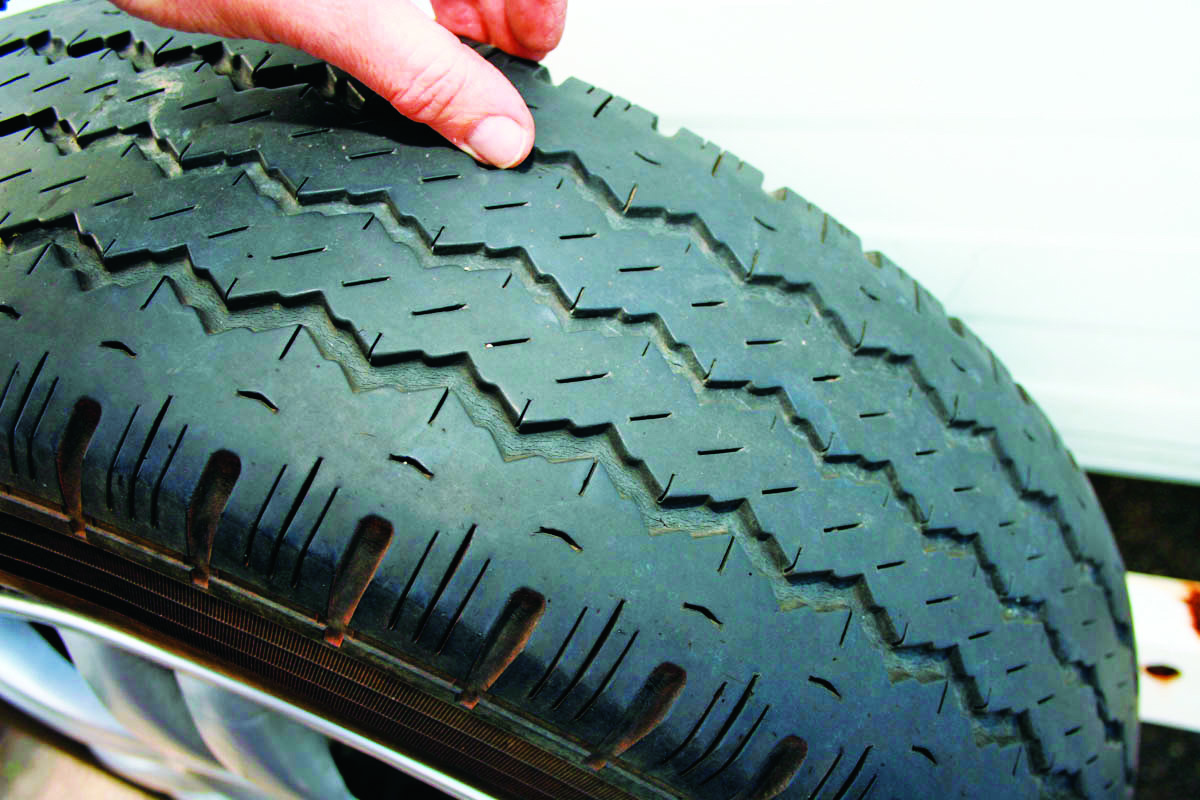
Failures in the tyre are usually due to the breaking of the bond between the steel belts just below the tread and the outer tread. This might become visible as a bulge in the tyre and may be evident as a vibration. If you kept driving the belts would finally break completely away from the tyre, causing damage to the caravan or camper trailer in the process and maybe wrapping around the suspension, and the tyres would become very flexible. The tyre would retain pressure for a brief period but would soon blow out.
Good tyres are a good investment in the security and safety of your caravan or camper trailer. Look after them, but know also that they have a finite life.
MEET THE AUTHOR
David Cook
David Cook has been a photojournalist in the magazine publishing world for 50 years, for 23 years of which he ran his own publishing business. As a keen camper he is now a well known contributor to several camping and travel journals.

